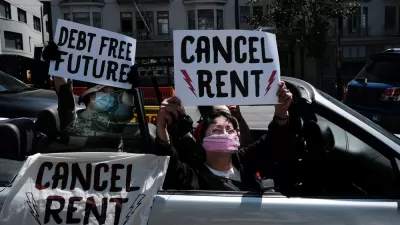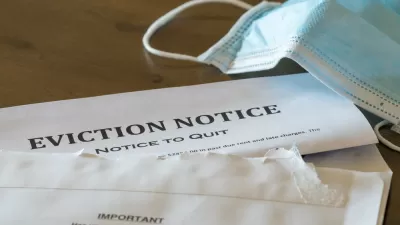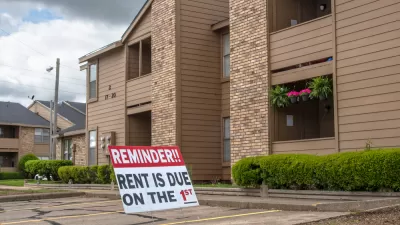Rural states like Nebraska, Montana, and West Virginia have refused federal funding to aid vulnerable renters during the economic shocks of the pandemic, and that money is now headed to other parts of the country.

“Governor Pete Ricketts, a Republican, has declined to spend $120 million in federal housing assistance funds, claiming the aid risks turning Nebraska into ‘a welfare state,’” according to an article in the Boston Globe by Pranavar Baskar [potential paywall].
Nebraska isn’t the only state to pass on federal funding in recent months—“hundreds of millions of that money is going unused,” according to Baskar, despite the $46 billion Emergency Rental Assistance Program's track record of success. The funding has helped stave off an estimated 1.3 million evictions, according to housing experts cited in the article. A similar redistribution of the program's funding was threatened in January 2022, as states like Georgia, Arizona, Wisconsin, and Louisiana were slow to spend their share, according to a New York Times article published at the time.
Despite the obvious need for housing assistance in rural parts of the country, the Biden administration is now responding to three states' refusal to spend their share of the program's funding by redirecting the funding to more populous parts of the country.
“In March, the Treasury reclaimed $377 million in rental aid, including $11 million from Nebraska, $45.3 million from Montana, and more than $39 million from West Virginia. North Dakota returned nearly half its funds. The federal government then sent that money to New York, California, and New Jersey — states that clamored for more help to weather a severe housing crises,” according to the article.
This isn’t the first time in history that Republican leadership at the state level has refused the largesse of economic stimulus spending. Then-Florida Governor Rick Scott (R) infamously rejected federal funding for high-speed rail during the Obama administration in 2011. That money was eventually redirected to California.
FULL STORY: Red states send back millions in federal housing aid, putting rural renters at risk

Alabama: Trump Terminates Settlements for Black Communities Harmed By Raw Sewage
Trump deemed the landmark civil rights agreement “illegal DEI and environmental justice policy.”

Study: Maui’s Plan to Convert Vacation Rentals to Long-Term Housing Could Cause Nearly $1 Billion Economic Loss
The plan would reduce visitor accommodation by 25% resulting in 1,900 jobs lost.

Why Should We Subsidize Public Transportation?
Many public transit agencies face financial stress due to rising costs, declining fare revenue, and declining subsidies. Transit advocates must provide a strong business case for increasing public transit funding.

Paris Bike Boom Leads to Steep Drop in Air Pollution
The French city’s air quality has improved dramatically in the past 20 years, coinciding with a growth in cycling.

Why Housing Costs More to Build in California Than in Texas
Hard costs like labor and materials combined with ‘soft’ costs such as permitting make building in the San Francisco Bay Area almost three times as costly as in Texas cities.

San Diego County Sees a Rise in Urban Coyotes
San Diego County experiences a rise in urban coyotes, as sightings become prevalent throughout its urban neighbourhoods and surrounding areas.
Urban Design for Planners 1: Software Tools
This six-course series explores essential urban design concepts using open source software and equips planners with the tools they need to participate fully in the urban design process.
Planning for Universal Design
Learn the tools for implementing Universal Design in planning regulations.
Smith Gee Studio
Alamo Area Metropolitan Planning Organization
City of Santa Clarita
Institute for Housing and Urban Development Studies (IHS)
City of Grandview
Harvard GSD Executive Education
Toledo-Lucas County Plan Commissions
Salt Lake City
NYU Wagner Graduate School of Public Service





























